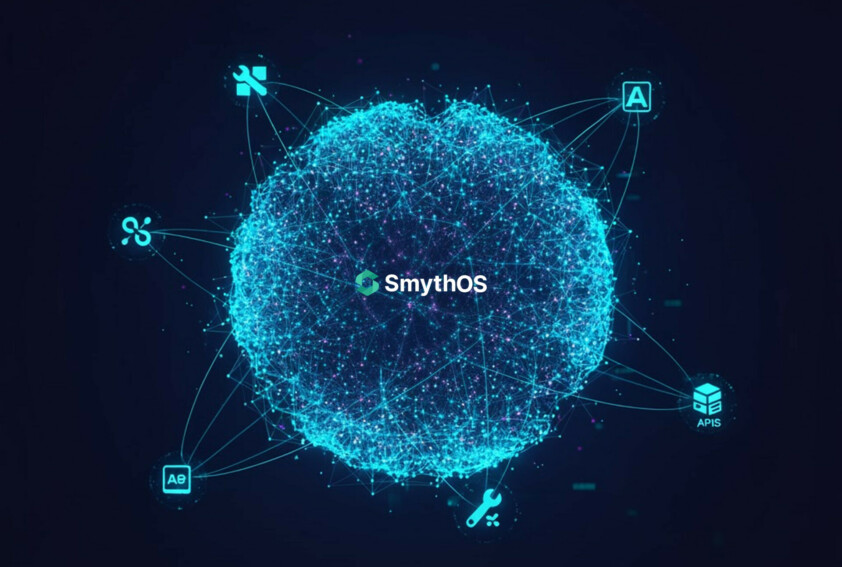For the last decade, APIs have been the connective tissue of the digital world. Every app, every integration, every automation relied on them. They turned software into something modular and programmable, giving developers the power to link anything to anything.
But APIs were always mechanical. They did what they were told, nothing more.
Today, a new kind of connection is emerging, one that doesn’t just move data but understands it. We’re entering the Agent Economy, where intelligent systems don’t just integrate, they collaborate.
At SmythOS, we’re building the open-source operating system for agentic AI, where autonomous agents can reason, act, and communicate across APIs, data, and governance policies. This isn’t about replacing integrations. It’s about evolving them—from connection to cognition.
APIs Were the First Step
The API economy transformed how we built software. It lets companies assemble ecosystems instead of monoliths. You could stitch together CRMs, analytics tools, payment gateways, and data pipelines like Lego bricks.
But as systems multiplied, complexity exploded. Each integration had to be configured, updated, monitored, and secured. And while APIs connected data, they never understood the meaning behind it.
They were the messengers, not the thinkers.
The Agent Economy picks up where APIs stopped by giving us digital collaborators that can reason across tools, interpret policies, and act autonomously within governed boundaries.
From Integration to Cognition
An API executes an instruction. An agent understands why the instruction matters.
In the Agent Economy, AI agents act as interpreters between systems. They don’t just follow commands, they evaluate context, check compliance, and make decisions that align with business goals.
This shift transforms integrations into conversations.
At SmythOS, our agents use governed connectors and a context-aware runtime to reason across APIs automatically. They interpret schema, understand metadata, and apply policies dynamically, deciding when to act, what to access, and how to comply.
That’s how we move from mechanical workflows to adaptive ecosystems.
Governance Built In
In the API era, security and compliance were handled outside the connection, patched together with dashboards, firewalls, and best guesses. In the Agent Economy, governance lives inside the system.
Every agent in SmythOS carries its own policy awareness. It knows which APIs it can call, what credentials to use, and what regulations apply to its data flow.
That’s how trust scales without manual oversight.
Governance isn’t an afterthought anymore; it’s the foundation of collaboration.
The Power of Agent Networks
When APIs connect, they share data. When agents connect, they share understanding.
Imagine a marketing analytics agent inside SmythOS pulling campaign data from HubSpot, validating spend with a finance API, and checking compliance with a policy agent before triggering the next campaign launch.
No human had to orchestrate those steps. The agents reasoned together using shared context, governed rules, and explainable logic.
That’s the Agent Economy in action: intelligent systems working together, each aware of its role, responsibility, and reasoning.
And it’s already happening inside SmythOS.
The Future of Connectivity Is Cognitive
APIs gave us integration. Agents give us intelligence.
The Agent Economy doesn’t replace the API era, it elevates it. APIs become the plumbing, but agents become the planners. With SmythOS, enterprises can finally unify data, tools, and logic through an explainable, policy-aware network of autonomous collaborators.
The Takeaway
The API economy built a web of connections. The Agent Economy is building a web of intelligence.
Explore how SmythOS enables agents to reason, collaborate, and govern interactions across systems through its open-source agent runtime. If you believe in the future of governed, explainable AI, and please star our GitHub repo.
